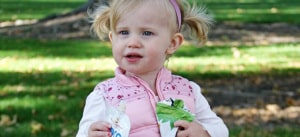November 1, 2014 by dev_team
November 1, 2014 by dev_team

Image Credit: Happy Family
Shazi Visram and Jessica Rolph launched Happy Family on Mothers’ Day in 2006 with the mission of making organic, nutrient-rich baby food widely available and affordable.
Now mothers themselves, Visram and Rolph gave a Mothers’ Day present to investors last year: the announcement that Happy Family was being acquired by French food giant Danone, reportedly, for more than $250 million for 92 percent of the company.
The acquisition demonstrates that impact investments — investments made into companies and organizations that aim to create social and environmental good — can indeed produce significant exits. Now, Happy Family will test another hypothesis: that mission-driven businesses can maintain their social impact inside huge global corporations.
Related: A Look Into Entrepreneurial Approaches to Social Change
As a major consumer products corporation, Danone provides global distribution and marketing, as well as deeper research and development capacity to expand the healthy baby food market Happy Family helped create. Inside Danone, Visram continues to head the company, serving as CEO and as the guardian of its social mission and vision.
Happy Family now faces a slew of competitors in the organic baby food market. Affordability is no longer emphasized on the company’s website and a quick check of prices at a major retailer indicated that prices for Happy Family products are on par with other brands of organic baby food.
Happy Family launched with five frozen baby food products in a handful of markets in New York City at a time when organic baby food sales in the U.S. were only $21 million. The founders hit the parks and playgrounds, talking to moms and caregivers, reached out to moms groups and healthcare networks, and built a “Happy Mamas” network as a kind of focus group and volunteer corps.
Visram, a Columbia Business School grad, leveraged celebrity connections to raise about $500,000 in seed funding. Celebrity chef Tom Colicchio came on as an advisor after Visram appeared in anAmerican Express commercial. Demi Moore and Honest Tea’s Seth Goldman were other early backers. Happy Family also attracted angel investment funds via from RAIN Source Capital, an angel network that supports local companies. First year revenues: $115,000.
Families can now find Happy Family meals for babies, toddlers and preschoolers in over 17,000 retail and online outlets across the U.S., including Whole Foods, Target and on Amazon.com, as well as in a number of international markets.
Reported revenues in 2013 were $91 million, up from $63 million in 2012, giving Happy Family a tiny slice of the $1.7 billion U.S. market for baby food and snacks (not including formula, by far the biggest seller). That market is dominated by Gerber — a brand of Nestle, Danone’s archrival. But organics represent the fastest growing segment and competitors are proliferating, primarily aiming for affluent parents.
Happy Family’s mission to make organic, nutrient-rich baby food available to parents at all income levels attracted a 2009 working capital loan from RSF Social Finance. RSF, a San Francisco-based open impact fund that has made over $275 million in loans to social enterprises, has a major focus on regional food systems and organic agriculture development.
RSF introduced Visram and Rolph to the Kellogg Foundation, which committed $4.6 million in debt and equity in 2012 as a “mission-driven” investment. Healthy children and families are a key focus for the $100 million portfolio, which is carved out from Kellogg’s $7.26 billion endowment. All told, Happy Family raised approximately $30 million in debt and equity.
Both RSF and Kellogg focus on market-rate returns from their portfolio, making nutrition and healthy-consumer products a major focus. Kellogg is an investor in Revolution Foods; RSF’s portfolio includes Numi Tea, Mary’s Gone Crackers, Late July and Guayaki.
In Happy Family’s business plan, Visram had identified Danone as the ideal corporate partner, and soon, Danone indeed inquired about a possible acquisition. Visram says Danone has committed itself to expanding Happy Family’s social mission.
Related: Micro Loan Startup Brings Banking to the ‘Unbanked’
“They approach product development in the same way that we do, and they are socially responsible like us,” she says, “both giving back to those in need and minimizing environmental impact at every level possible.”
Financial: Happy Family reported 2013 revenues of $91 million, up from $63 million in 2012.
Social: Happy Family fought for designation under the Special Supplemental Nutrition Program for Women, Infants and Children (WIC) to expand access for low-income parents.
Produced by ImpactAlpha and the Case Foundation.
One of a series of impact profiles produced in conjunction with the Case Foundation’s new publication, “A Short Guide to Impact Investing.”